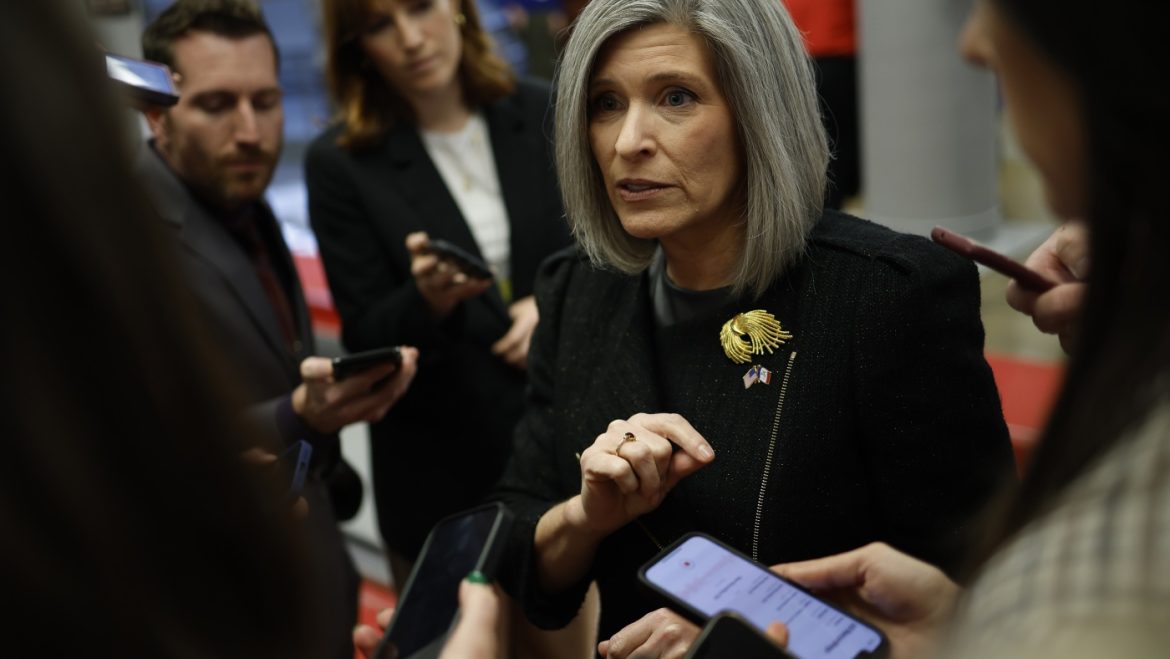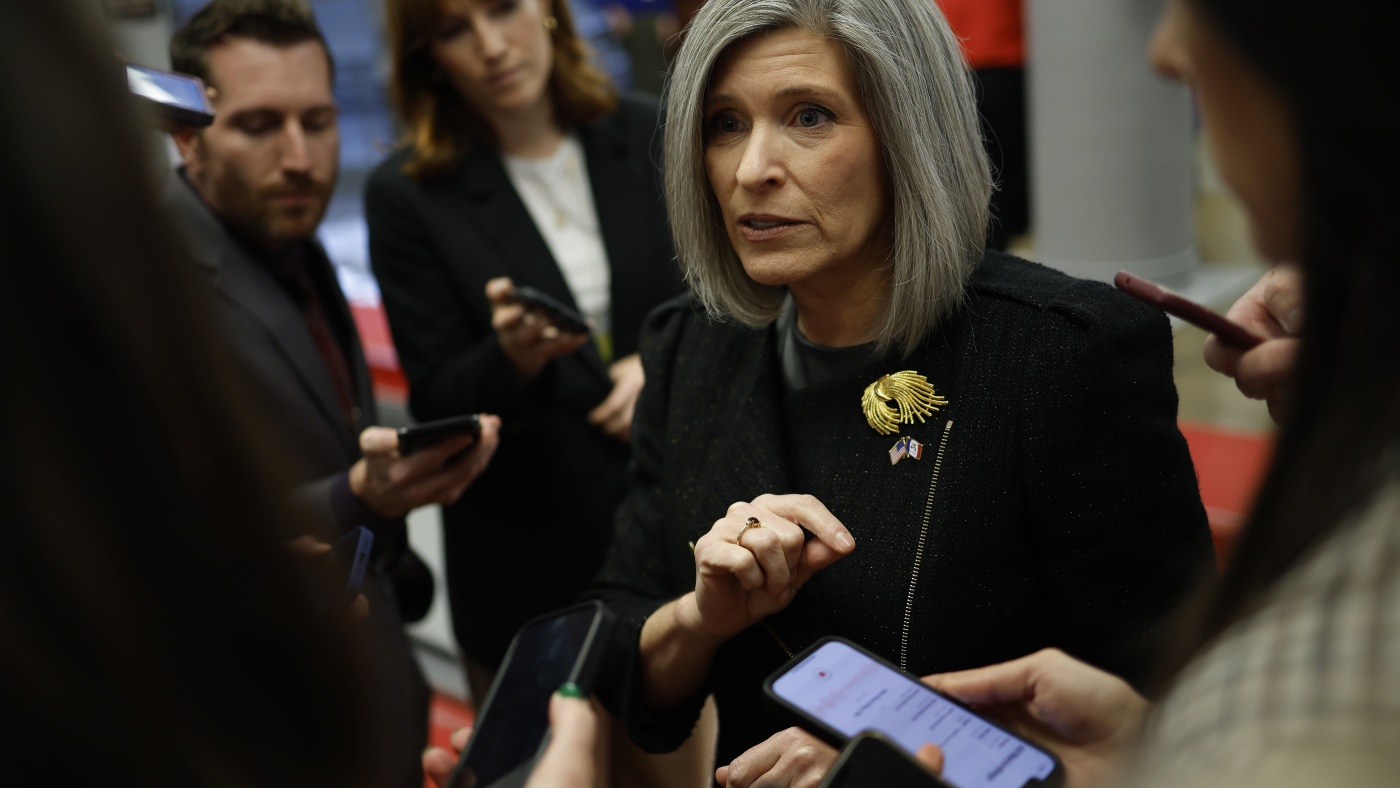Context and Overview of Senator Joni Ernst’s Medicaid Town Hall Exchange
In a recent town hall in Parkersburg, Iowa, Republican Senator Joni Ernst faced intense scrutiny and backlash over her defense of proposed Medicaid funding cuts embedded within a sweeping GOP budget bill. The legislation aims to implement substantial tax cuts largely favoring wealthy Americans while drastically reducing allocations for social safety net programs, including Medicaid and food assistance programs like SNAP.
During the event, an audience member challenged Ernst on the human cost of these cuts, emphatically stating, “People are going to die.” In response, Ernst retorted, “Well, we all are going to die.” This blunt rejoinder sparked immediate disapproval—boos, gasps, and criticism from constituents and commentators—and quickly became a focal point for national media analysis and political debate.
—
The Substance Behind the Statement: Medicaid Cuts and Proposed Changes
The proposed budget package that Ernst was defending includes a $4 trillion tax cut plan, which critics argue disproportionately benefits the wealthy. Within this legislation, Medicaid—a program that supports millions of low-income and vulnerable Americans by providing essential health coverage—faces severe reductions. Among the debated changes is the introduction of strict new work requirements for Medicaid eligibility, which opponents warn could disqualify many individuals who genuinely need assistance.
These policy shifts raise significant concerns that many of the poorest, sickest, and most marginalized individuals might lose coverage, potentially impacting their health outcomes and survival.
Ernst’s remarks came in the midst of constituent anxiety over whether these cuts will increase preventable deaths due to lack of access to care. Her response, understood as dismissive or fatalistic by many, seemed to acknowledge mortality as a universal truth but also appeared to undercut the very real implications of policy decisions on public health.
—
Public and Political Reaction: Analyzing the Impact
The exchange provoked a wave of negative responses from multiple quarters:
– Constituents’ Outrage: Many attendees and observers saw Ernst’s statement as callous or insensitive given the gravity of the issue. People facing the prospect of losing life-saving healthcare expressed alarm that their concerns were met with what felt like an indifferent or brusque answer.
– Media Amplification: Headlines stressed the starkness of the comment, often framing the moment as emblematic of a broader GOP tendency to overlook the human cost of fiscal and legislative priorities. Terms like “bleak,” “combative,” and “flippant” appeared frequently in coverage.
– Opposition Critiques: Democratic politicians, activists, and advocacy groups seized on the incident to highlight what they interpret as a lack of empathy within the Republican approach to social welfare issues. The comment was portrayed as a damaging political misstep that underscores the potentially lethal consequences of the budgetary decisions being championed by Ernst and her colleagues.
– Supporter Defense: In contrast, Ernst’s spokesperson framed her remarks as an effort to counter “fearmongering” by Democrats. They emphasized her stated focus on “improving the lives of all Iowans,” framing the budget as a provision of integrity and long-term sustainability for programs like Medicaid—though this interpretation did little to quell immediate criticism.
—
Underlying Themes: Mortality, Policy, and Political Communication
Ernst’s response, “Well, we all are going to die,” touches on a universal truth but also raises questions about how policymakers communicate about life-and-death issues. It highlights several thematic tensions:
– Existential Truth vs. Policy Consequences: While death is indeed inevitable, public health policy can determine the quality and length of life. From this perspective, dismissing the impact of Medicaid cuts with an existential reminder risks minimizing preventable harm.
– Tone and Empathy in Political Discourse: The bluntness of Ernst’s reply contrasts sharply with the emotional realities facing her constituents. Politicians often walk a fine line between candidness and compassion, and miscalculations can alienate voters and undermine trust.
– Partisan Framing of Social Programs: The incident underscores the broader ideological divide concerning social safety nets. For Republicans advocating fiscal restraint and market-driven solutions, cuts to programs like Medicaid symbolize necessary reform. For Democrats and many advocates, these programs are lifelines that save lives and build communities.
—
Broader Implications for the GOP and Public Discourse
Senator Ernst’s exchange offers a microcosm of the current polarization in American politics. The intersection of budgetary priorities, health care access, and public perception plays out vividly in moments like these. The GOP’s push for aggressive tax cuts amid social program reductions is a strategic choice that mobilizes its political base but risks alienating vulnerable populations.
The phrase “We all are going to die” has ironically become a symbol of this disconnect, prompting discussions about how politicians frame policy debates around basic human dignity and security.
—
Conclusion: Navigating the Complex Terrain of Policy, Mortality, and Public Accountability
Senator Joni Ernst’s town hall exchange crystallizes a fraught moment in American political life. While mortality is indeed universal, the policies governing healthcare access directly influence who suffers and who survives in the meantime. Ernst’s response serves as a stark reminder that the language leaders choose can either convey empathy and responsibility or reveal indifference to the lived realities of their constituents.
The Medicaid debate is more than a budgetary exercise; it is intrinsically connected to questions of justice, equity, and the social contract. How policymakers acknowledge and address these stakes will shape not only political fortunes but the very health and wellbeing of millions of Americans. This incident challenges all sides to consider the human consequences beyond partisan calculations, encouraging a discourse that genuinely grapples with the implications of “who lives, who dies, and why.”


